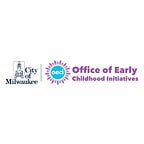What is the Role of Parents in Child Development?
Parents and other caretakers guarantee their children’s safety and well-being. So that they can raise successful individuals and instill important cultural values in their offspring, there is access to resources for parents. Young people require parental and care giving relationships characterized by unconditional love, acceptance, appreciation, encouragement, and guidance. They make the safest and most supportive place for kids to develop.
While a Child is Infant
Infants who are cared for quickly and lovingly are more likely to form secure attachments, a critical developmental job. Such an affectionate connection is crucial for the growth of a healthy parent-child relationship. The bonds between siblings and their caretakers should also be strengthened. Infants who can form secure attachments with their parents and caregivers will feel more comfortable venturing out into the world. This lays the groundwork for the maturation of the mind, heart, and spirit.
While in Adolescence
Taking care of a child who has reached puberty presents a whole new set of difficulties for parents and other caregivers. Both children’s physical and mental capacities develop and change at a rapid pace. Preparation for shifts in the parent-child dynamic is important for all caregivers. The adolescent years are a time of growing independence and a shift in focus from the family to the wider world. The adolescent years are characterized by a natural yearning for freedom and individuality. Caring adults for and teenagers must strike a balance between fostering closeness and encouraging independence. Teenagers who are close to their family yet do not feel stifled by them do better in life. Teens who have a strong sense of belonging in their families and who receive positive reinforcement from their primary caregivers are less likely to engage in risky behaviors including substance abuse, anxiety, and depression.
During Adversity
Children and young people benefit greatly from having the love and encouragement of their family and friends as they struggle through difficult times. Especially if they have to deal with discrimination because of their ethnicity, gender, ability, size, or social background.
Parental education about racism and prejudice, as well as the transmission of positive cultural attitudes and values about the child’s cultural background and racial origin, has been shown to increase the safety of children of color. Among young people from racial minorities, racial socialization is associated with increased feelings of self-worth, higher levels of academic accomplishment, and reduced levels of depression.
Summary and Additional Resources for Parents to Understanding Child Development
Raising a child and their growth go hand in hand. One can utilize the adages “The apple doesn’t fall far from the tree” and “The branch develops as the trunk grows” to describe the impact of parenting on a child’s maturation and growth. Each phase of growth is dependent on the next and cannot be broken down into discrete stages. Parenting is essential and ever-evolving duty. It affects how a kid processes information, responds, reasons, and makes choices in various areas.
